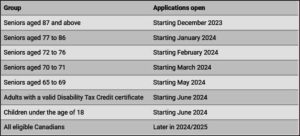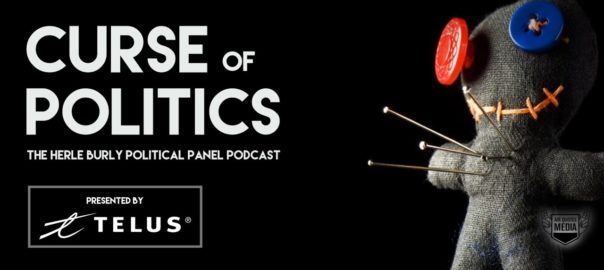
Don Davies, NDP member of Parliament for Vancouver Kingsway, since 2015.
Father of Canada’s new Dental Health Care Programme, and Dental Care for Canadians.
On Monday, December 11, 2023, the Canadian government announced a new Dental Care Programme that will cover the 9 million Canadians who do not, at present, have dental coverage.
“Far too many people have avoided getting the care that they need simply because it was too expensive, and that’s why the Dental Care Programme is essential to the health of Canadians,” federal Health Minister Mark Holland told the news conference held in early December 2023, introducing the new programme.

The Canadian Dental Care Programme when fully implemented will provide dental care to families whose annual net income is less than $90,000, and who don’t have access to private insurance. Full coverage, with no co-pay will be available to families whose annual net income falls below $70,000, while Canadian families with an income between $70,000 and $90,000 will pay a co-pay fee, as per the chart above.

Canada’s federal Finance Minister, Chrystia Freeland, set aside and has budgeted $13 billion over a five-year period, commencing in early 2024, to pay for Canada’s new Dental Care Programme, introduced in her most recent budget, on Tuesday, March 28, 2023, or $2.6 billion per year drawn from Canada’s current annual federal budget of $497 billion dollars, which is to say, 0.523139 per cent of our annual federal budget, just a tad over half a per cent to fully cover the 9 million Canadians across our land who currently suffer without any dental coverage.

The introduction of Canada’s new Dental Care Programme occurs as a consequence of the Supply and Confidence Agreement struck on March 22, 2022 between the governing Liberals and the opposition New Democrats, that since its implementation has affected legislation introduced by Justin Trudeau’s federal Liberal party, ranging from legislation that bans the use of replacement workers (scabs) in federally regulated workplaces during a strike or lockout; Bill C-58 preventing employers from hiring “scabs” to do the work of unionized employees on strike or locked out, to the implementation of a groundbreaking dental care programme that will cover 9 million Canadians currently without dental care coverage.
Negotiation for an inclusive Canada-wide dental care programme began shortly after the signing of the Supply and Confidence Agreement, the negotiation involving then federal Liberal Health Minister Jean Yves-Duclos, and the New Democratic Party’s well-respected Health Care critic, Vancouver-Kingsway MP, Don Davies.
For much of the past two and a half years, the negotiation for an expansive and inclusive, publicly-funded Canadian dental care plan was an uphill battle for NDP Health Care critic Don Davies, as Jean Yves-Duclos and Mr. Davies parried back and forth, the process of realizing the new programme an at times arduous, unresponsive and unforgiving one. All that changed for the better, though, in recent months.
Don Davies is, indeed, Canada’s dental health care warrior, and the father of publicly-funded dental health care in Canada, as Tommy Douglas was the father of Medicare. For Don Davies, patience and persistence has paid off for all Canadians.
Final negotiation for the introduction and implementation of Canada’s new Dental Care Plan began in earnest when Don Davies’ good friend, former Liberal House Leader Mark Holland was appointed as Canada’s Health Minister, in September.
Mark Holland and Don Davies are known on Parliament Hill as Batman and Robin, are very good friends, and on the same page when it comes to social legislation. When making the announcement of Canada’s new dental care programme last month, very much together on the same stage, at the same podium, you could see their obvious affection for one another, as well as pride and joy at a job well done.
Canada’s new Dental Care Plan will be phased in over the course of the next year.

Now: the details of the phase in strategy, how and how much dentists will be paid, and what the new Dental Care Plan will cover, as told to VanRamblings by Don Davies at a Town Hall conducted in his riding, in November, just prior to the federal government’s announcement of the implementation of one of the largest, most inclusive pan-Canadian social programmes legislated into being in the past 50 years.
Mr. Davies told those assembled at the Town Hall that in 2022 – 2023 an exhaustive search took place to identify an insurance corporation that could efficiently and effectively administer Canada’s proposed new Dental Care Programme.
In June 2023, Mr. Duclos and Mr. Davies made the decision to turn over the administration of Canada’s proposed new Dental Care Plan to Sun Life Canada, one of our country’s largest public companies, and at present one of the world’s largest multi-national life and health insurance, and asset management companies.

The following is the mandate of Sun Life, the task they have been charged with by the federal government that will lead to the realization of Canada’s new Dental Care Plan, covering the 9 million Canadians currently without dental insurance …
- Sign up 90% of Canadian dentists to the country’s new Dental Care Plan. Dentists will be paid 85% of their province’s Dental Fee Schedule. Sun Life is to reimburse dentists within 48 hours of dentists submitting their claim to Sun Life Financial;
- In December 2023, Sun Life began signing up all eligible Canadians aged 87 and older, with eligible seniors set to be contacted and signed up in March 2024. Dental coverage for the former group is set to begin as early as May 2024;
- Effective June 2024, Sun Life will begin to sign up all eligible Canadian children, birth to 18 years of age, dental coverage for this cohort to begin this late summer;
- All remaining eligible Canadians will be registered for Canada’s new Dental Care Programme effective this autumn, with implementation of coverage for this cohort to start at the beginning of, or early in 2025.
Thus far, the roll-out of Canada’s new Dental Care Programme moves on apace, with the sign-up of Canadian dentists moving ahead as projected, with the sign-up of Canadians also moving ahead as projected, the Dental Care Programme set to be fully realized by the end of 2024, covering the 9 million eligible Canadians.

Applications will open in phases, starting with seniors aged 87, which began in December 2023, followed by other age groups as per the chart above.
Coverage under the Canada’s new Dental Care Plan will commence as early as May 2024, with seniors being the first group eligible. The actual start date for accessing oral health care will depend on the specific group you belong to, the timing of your application, and when your enrolment is processed.
Now for the part you’ve been waiting for: what dental procedures will be covered ?
- Oral surgery services, including tooth extractions;
- Restorative services, including fillings for cavities, cracks, and broken teeth;
- Crowns, but as Mr. Davies told VanRamblings last week, “only if medically necessary.” As an example, if you have a crown, but the gums beneath the crown become infected and in order to resolve the infection, the existing crown must be removed, and replaced, such would be considered “medically necessary”, and the expense involved in the dental work, taking an impression of the crown/tooth, and the manufacture and subsequent Crown placement in your mouth would be fully covered;
- Repairing a chipped tooth, bonding the most likely repair route your dentist will likely recommend;
- Root canals (endodontic therapy), the dental treatment for infections in tooth pulp, the innermost layer of your teeth;
- A full and in-depth teeth cleaning, including scaling, sealants, a flouride treatment (if so desired) and polishing;
- Dental X-rays, to evaluate your dental health;
- General anesthesia, also known as deep sedation dentistry, if required;
- Partial and complete dentures;
- Orthodontic services, including braces and retainers, and much more;
- Periodontal care, the branch of dentistry that focuses on the health of your gums and jawbone — the tissues that support your teeth. A periodontist is a gum specialist.
At present, the only dental procedures that will not be covered — unless they are considered medically necessary — are veneers and tooth implants, which are considered to be cosmetic dentistry, rather than a medically necessary procedure.

In somewhat related good news, federal Conservative Party leader, Pierre Poilievre, who last spring in Parliament, and in front of crowds at the Trump-like rallies he holds, was adamant that the first two “fiscally prudent” measures he would take upon becoming Prime Minister would be to cancel $1.3 billion in annual funding for the CBC, cutting as well the annual $2.6 billion funding for public dental care, has for the latter — according to Lisa Raitt, former Minister of Transport / Labour / Natural Resources during the 10-year term of the Stephen Harper government — in a recent discussion on CTV News Channel’s Power Play with Vassy Kapelos, told Ms. Kapelos that Mr. Poilievre, recognizing that by the time the next federal election rolls around in the fall of 2025 that Canada’s new Dental Care Programme will be fully implemented and popular with Canadians across the land, and because becoming Prime Minister is of paramount importance to him, has reversed himself on his commitment to cancel the Dental Care Programme …
” … as Erin O’Toole did in 2019, when initially he told Canadians that a key plank in his platform would be to cancel the wildly popular Canada Child Benefit, reversing himself on the matter before the 2021 federal election, lest it become an issue that would cause his defeat. Canada’s new Dental Care Plan is here to stay,” Ms. Raitt told Ms. Kapelos, and her fellow panel members.

Once enrolled, Canadian residents who qualify will be sent a welcome package by Sun Life, with a member card and a starting date for when their oral health care services will be covered. Those Canadians who are eligible for enrolment in the new Dental Care Plan will be able to start experiencing oral health-care as early as May 2024, as above, commencing with coverage for Canada’s seniors population.




